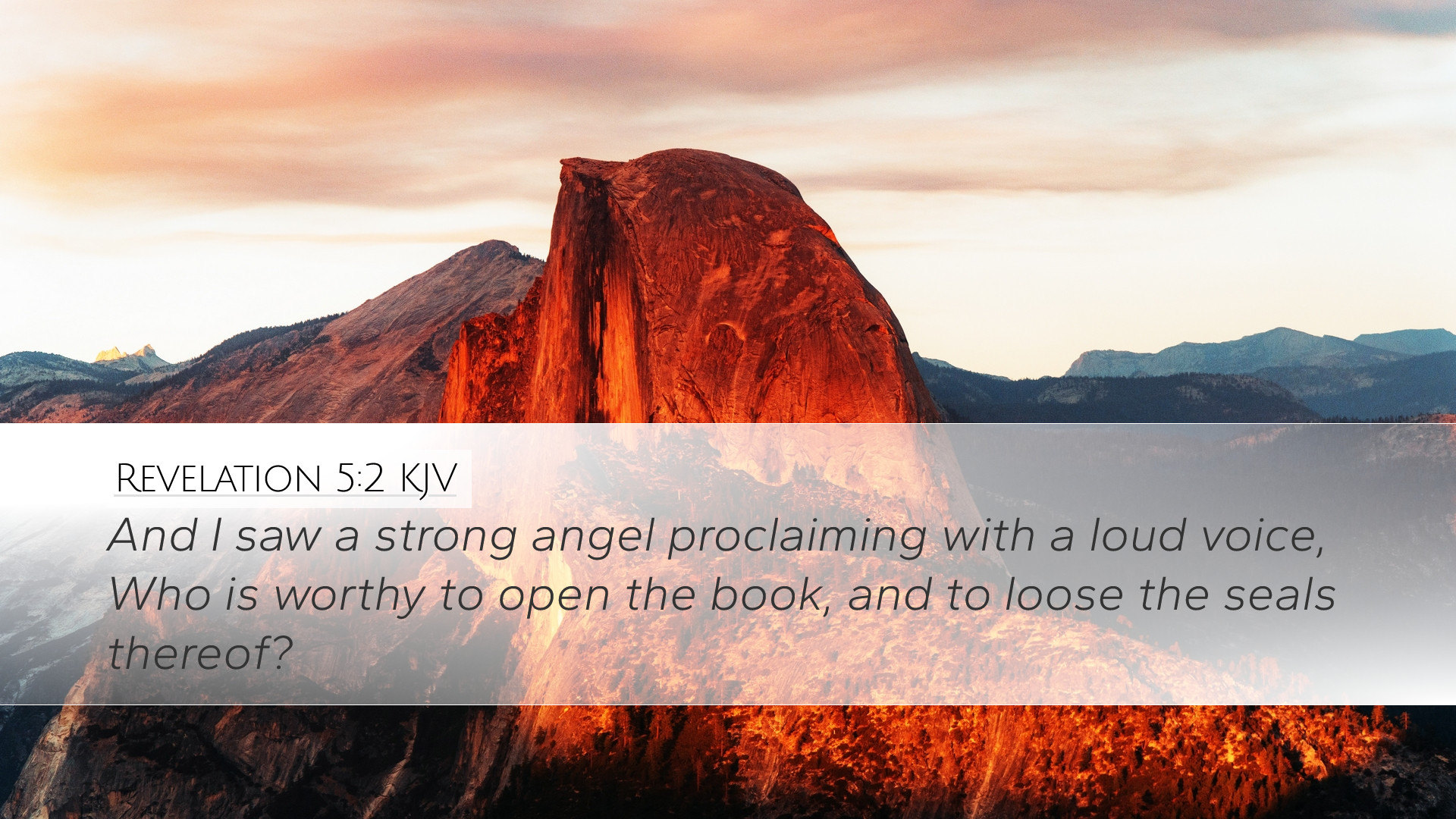Commentary on Revelation 5:2
Verse: “And I saw a strong angel proclaiming with a loud voice, Who is worthy to open the book, and to loose the seals thereof?”
Introduction
This verse is a pivotal moment in the Book of Revelation, reflecting both the majesty of God’s plan and the profound worthiness required to execute it. To understand its significance, we shall draw on insights from respected public domain commentaries, including those by Matthew Henry, Albert Barnes, and Adam Clarke.
Contextual Background
The scene unfolds in the heavenly realm, where John the Apostle, the seer of Revelation, is given a vision that transcends earthly understandings. The "book" or "scroll" mentioned symbolizes prophetic revelations and the unfolding of God's redemptive history.
Strong Angel’s Proclamation
The strong angel's declaration signifies the seriousness of the moment. According to Albert Barnes, this angel's role emphasizes both strength and authority in heaven, drawing attention to the urgency of addressing the sealed scroll. The angel's loud voice indicates the importance of the query: “Who is worthy?”
The Question of Worthiness
This powerful question, as elucidated by Matthew Henry, underscores the great need for a mediator between God and humanity. No mere mortal could approach the scroll; it requires someone of divine stature. This highlights the theme of worthiness central to the Christian faith—a theme regularly explored by theologians.
The Book and its Seals
The book, which is sealed, is laden with divine mysteries and judgments. Adam Clarke posits that the seals represent the different stages of judgment and the fulfillment of prophecy. Unsealing the book symbolizes the revelation of God’s purposes, necessitating a figure worthy to execute His plan.
Theological Implications
Revelation 5:2 raises profound theological reflections about authority and worthiness. As Henry articulates, it invites Christians to consider who can stand before God and unveil His divine will. The need for a worthy figure implies humanity's inherent unworthiness in the cosmic narrative of redemption.
Comparison with Old Testament Themes
In light of biblical history, references to scrolls can be traced back to the prophetic writings in the Old Testament. The role of a redeemer or mediator comes to life as John reveals the necessity of divine intervention to reveal God's plans to humanity. This correlation provides a rich tapestry of interconnectedness throughout scripture.
Call to Reflection for Church Leaders
For pastors and theologians, this verse embodies a call to reflect on the nature of Christ’s advent and His qualifications for our relationship with God. The inquiry posed by the angel serves as a reminder of the importance of recognizing Jesus as the sole bearer of worthiness. Barnes emphasizes that acknowledging Christ's worthiness brings both comfort and challenge to the believer.
Conclusion
In summary, Revelation 5:2 encapsulates a moment of anticipation in heaven, questioning the worthiness required to unveil God’s redemptive history through the sealed scroll. The profound implications of this single query resonate throughout Christian theology, drawing believers and scholars alike to recognize the unparalleled worthiness found in Christ alone.


